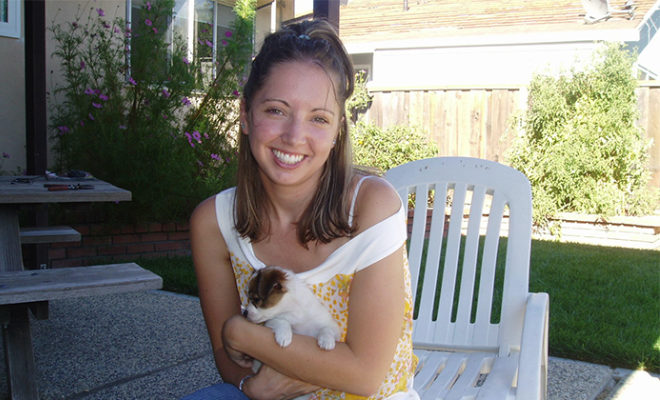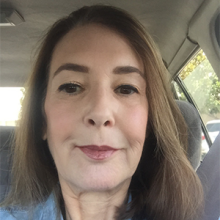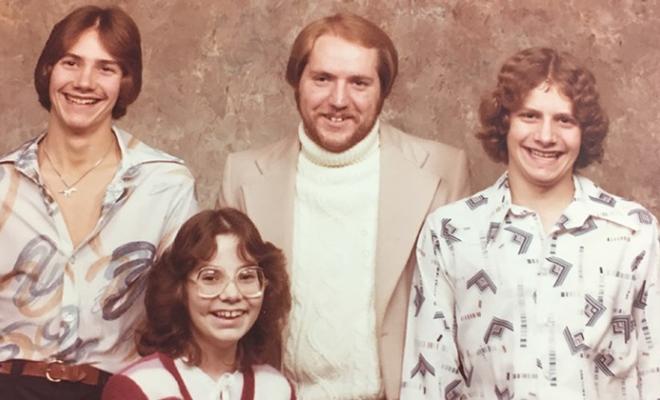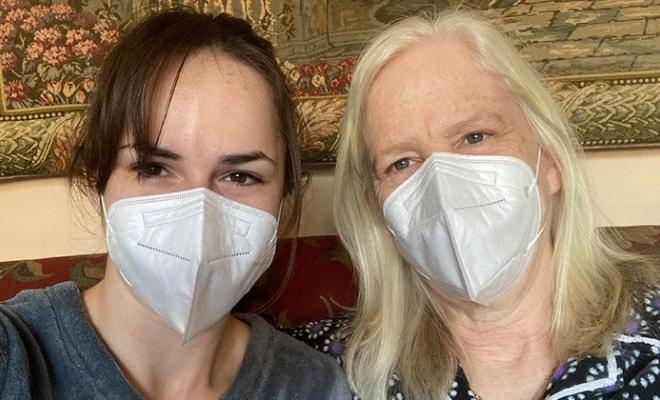As children, we learn right from wrong. But with grief there is no right or wrong way. There are no rules.
My name is Deborah Contreras and I am the mother to Desirée, who passed from cystic fibrosis in 2005 when she was 20 years old. When Desirée was diagnosed at 6 months old, I had never heard of CF, nor knew anything about it.
Life with Desirée went by too fast, in part because of the health challenges she faced. We went through clinic appointments and multiple sinus surgeries, and was diagnosed with CF-related diabetes when she was in the second grade. Desirée was in and out of the hospital for what are referred to as “tune ups.” The first couple of days in the hospital were always the worst, but the usual stay was at least 10 days, sometimes more. We lived in the Bay Area, and received treatment at Stanford Children’s Hospital in Palo Alto, Calif. They have an excellent CF clinic that we worked with. It was like having a second family, a place where new friendships developed.
Desirée always told me that she never wanted to pass in the hospital. She wanted to be in her own home, in her room. I never really thought much of it until her final year. It was a year I would never wish upon anyone. She was in the hospital for six months. She was home only two weeks during November and December.
This time would be the last, and the only way she could come home would be with hospice/palliative care.
I had heard of hospice, but I always thought it was for older people, not for someone Desirée's age. Everything was happening so fast, and it was during holiday time — Christmas and New Year’s. So that made it difficult too. Once we had a date of discharge and equipment was delivered to the house, Desirée came home.
I didn’t have to do anything. I didn’t have to make any phone calls — it was all done by hospice. They told me that the hospice nurse would be out at the house to meet us, and have Desirée sign some paperwork, a do not resuscitate, or DNR, form. The nurse, Sharon, was very nice. She sat on the couch and talked with us about what to expect and asked us lots of questions. She gave me lots of pamphlets to read, but nothing really made much sense — I was overwhelmed. Sharon returned the next day to check in and brought more information. She asked if she could send a counselor to talk with me, or she could send someone that provides respite care.
Respite care provides short-term relief for the primary caregiver. It can be arranged for just an afternoon or for several days or weeks.
Hospice also provides palliative care. I learned there are five stages of palliative care:
• Stage 1 — active monitoring with Desirée’s care team
• Stage 2 — symptom management
• Stage 3 — progression
• Stage 4 — end-of-life care
• Stage 5 — bereavement
Desirée was a strong believer in God — her faith, and trust in Him is what kept her at peace. She knew she was dying, but she wasn’t scared. One day, the hospice team sent someone out to the house to talk with Desirée about what she wanted … what she wanted at her funeral, what she wanted people to wear, who she wanted to be there. She knew exactly what she wanted with hesitation.
She even wanted her dog there, as well as my sister’s dog — both wore pink nail polish.
Later she talked with me, and Desirée’s sister, Mallory, who does not have CF. Hospice was always at the house, even if I had a question. I could call, no matter the time. I always felt like I was reassured that I wasn’t alone in this. That Desirée mattered. Hospice isn’t for everybody, but with their help, I was able to have Desirée pass in her own home, in her own bed — as she wanted. Hospice did everything the next week. They picked up all the supplies, oxygen tanks and medication were disposed.
Hospice provides grief counseling either one-on-one or for groups for parents who have lost a child, spouses that have lost a loved one, and for adults who have lost either a mother or father.
Grief is something we all experience. It’s how we process the loss of someone we love. The loss was explained to me as a big, open wound that is weeping, and that one day a scab will form, and at times maybe a piece of that scab might fall off, but in time the scab itself will begin to heal.
Interested in sharing your story? The CF Community Blog wants to hear from you.





